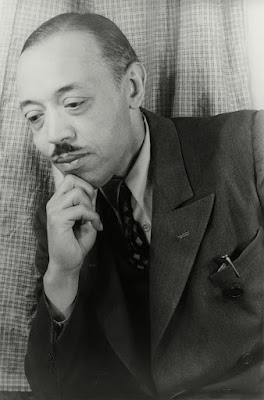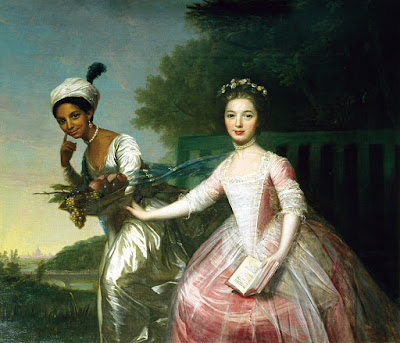 |
| Shirley Thompson in performance |
Shirley's career has included a remarkable range of performance, composition, along with work with multimedia and activism, but she feels that music has always been central to her work. That said, she was always interested in film and the stage, and in fact trained as a film maker and worked for the BBC for 10 years making documentaries. Training which gave her a feel for narrative that she transferred to her music practice. And whilst she is interested in poetry, literature and history, she performed in orchestras from the age of 10 and this gave her a familiarity with the classical canon which has informed a lot of what she does.
 |
| Passengers disembarking from the Empire Windrush at Tilbury Dock, June 1948 |
In fact, she studied Modern History at University, covering a period from Russia in 1918 to the Cold War, and could not decide between a life in History or Music. But she spend so much time in music, practising and performing that her whole life was in music and this rather tipped the scales. But the love of history has remained and informs her music and the subjects she looks at, informing her mission to tell stories that have not otherwise been aired.
Her parents came to London from Jamaica ten years after Windrush, and music at home was a mixture of Blue Beat, Reggae and classical. Her father heard the music of Tchaikovsky on the radio in Jamaica and used to sing it around the house. Shirley points out that Jamaica had a lot of classical and English folk music on the radio as so many elements of Jamaican musical culture were based on British culture. She feels that this is something that is often forgotten in the UK, Jamaica might be hot but the systems are very much the same.
Shirley was always fascinated by her parents' migration experience, why they left, how they left and what they thought they were coming to. And it was these questions which informed Women of Windrush Tell Their Stories.
 |
| Portrait of William Grant Still by Carl Van Vechten |
It was only later that she discovered composers like William Grant Still (whose music she first came across in Victoria Music Library) or Samuel Coleridge Taylor. She first got to know this latter composer when she was asked to arrange two of his spirituals. Even now, though William Grant Still is mentioned in schools, he is rarely referenced in higher education.
She has been working on the composer Florence Beatrice Price for the BBC, and also working on a programme for International Women's Day. This is something which is relatively new for her, to be working on composers of African origin for the BBC, and she has produced a timeline of composers and musicians of colour for Radio 3, from 1400 to the present day.
Composers such as these give you a heritage that you did not know you had. It has been a journey on which she has discovered some fantastic music, and found out that some real innovators were Black. She would have felt more part of University if these composers had been present when she was being taught, as it was she did not feel that she belonged.
 |
| Florence Beatrice Price |
Her natural voice is lyrical, with smooth lines and fragments of melody to latch on to, and people around her were not doing that so that she was not being promoted. So this was why she founded her own ensemble, and whilst publishers were keen for her to perform the music of her contemporaries she concentrated on her own music. Once or twice a year the ensemble would perform at the Purcell Room on the South Bank, and Shirley did everything from programming to promotion and finance.
Shirley is a big fan of Orson Welles, and his struggle to make projects happen outside the framework of Hollywood inspired her. If your voice is different then it can be hard, and people like Orson Wells inspired her along with the support from her friends, and her professors. And audiences came to their concerts, but she is not sure how much of this was taken on board by the classical music industry.
When I ask about her musical heroes, she first of all names Stravinsky and Bach, adding that she loves hymns (she has a love of simple melodies), and the music of Tchaikovsky with its tuneful orchestration. And she enjoys the way Copland's music evokes a big landscape.
After University, her first job was writing music for television and her ability to write in different styles meant that she sat happily in this role. But she made a conscious choice to do more concert music. In 2002 she was invited to write a piece for the 50th anniversary of Queen Elizabeth becoming queen, and she wrote a symphony about London, become the first woman to write and conduct a symphony in Europe for forty years.
 |
| David Martin: Dido Belle and Lady Elizabeth Murray |
Another on of these heroines, is Dido Belle, which arose when Shirley first came across David Martin's painting which triggered a story which developed into another one-woman opera from the Heroines of Opera series. Little is in fact known about Dido Belle, so most of the piece was invented. It was first performed at the Queen Elizabeth Hall in 2007 for the 250th anniversary of the Act of Abolition.
Coming up she has a piece being performed by the Orchestra of St John's in their programme Displaced Voices at Somerville College, Oxford on 18 January, and at Kings Place on 19 January. This is a work for soprano, mezzo-soprano and strings, setting poetry about war and refugees, including texts written by refugees. Then in February 2019 she has a commission as part of Hear Her Song's project commemorating the UN's initiative focusing on women. 20 composers around the world have been match with 20 well known people to produce musical portraits, so Shirley will be creating a musical character portrayal of the Ambassador Ruth Davis of the USA (Davis is the 24th Director General of the United States Foreign Service, and the first woman of color to be appointed as Director General of the Foreign Service and the first African-American Director of the Foreign Service Institute).
Elsewhere on this blog:
- Unwrapping Venus: the music of Barbara Strozzi at Kings Place (★★★★½) - concert review
- Oper Köln delivers a colourful account of Ralph Benatsky? & Robert Stolz’ The White Horse Inn (★★★★) - operetta review
- A year at Lincoln: Aric Prentice and the choir of Lincoln Cathedral on Regent Records (★★★) - Cd review
- Handel at Cannons: Chandos Te Deum and Chandos Anthem No. 8 from Adrian Butterfield, London Handel Orchestra and soloists (★★★★★) - CD review
- Seeing out the old year and seeing in the new: Tony Cooper at the Tiroler Festspiele, Erl (★★★★) - concert review
- Ancient and modern: Liam Byrne, a viola da gamba and a laptop at Baroque at the Edge (★★★★½) - concert review
- Diverse tapestry: Clare Norburn's Burying the Dead at Baroque at the Edge (★★★★) - music theatre review
- Rediscovering her Polish musical roots: violinist Jennifer Pike on the personal connections in her latest disc, The Polish Violin - interview
- Strong and vibrant: Tallis masses and motets from the Chapel Royal at Hampton Court (★★★★) - CD review
- Bach's Goldberg Variations - CD review
- 2018 in opera and concert reviews - article
- Concerto for silent soloists: my encounter with Gavin Sutherland, music director of English National Ballet - interview
- That Old Thing: remembering Covent Garden's revivals of historic productions in the 1980s - article
- The Medieval Tendency - article
- Home






%20TallWall%20Media_Oxford%20Song.jpg)
%20TallWall%20Media_Oxford%20Song.jpg)
%20TallWall%20Media_Oxford%20Song.jpg)


No comments:
Post a Comment